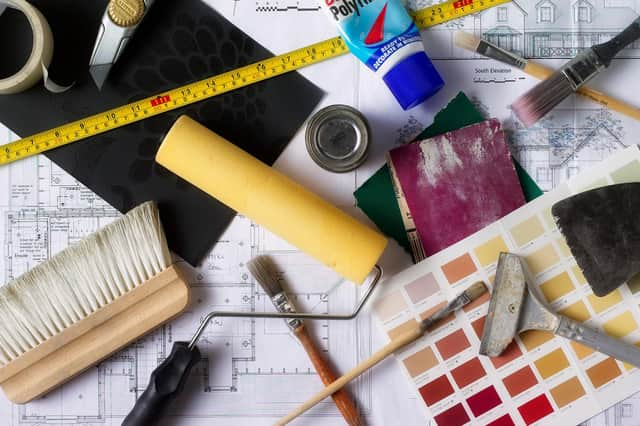Building up equity may be sensible route to finance property improvements - Gareth Shaw


A It’s common for people to tap into the cash they’ve built up in their property to pay for renovations, but it isn’t the only route. Remember that a mortgage is a multi-decade debt, and so any additional borrowing you take on stays with you for the term of your loan. What might seem like the obvious place to finance your project, could be the most expensive.
Let’s explore what you’re suggesting in a bit more detail. Given that you’ve just bought the property, what you’re looking to do is increase your mortgage. Doing this with your existing lender is often called a ‘further advance’. This sees you borrowing more money from your existing lender during the term of your mortgage deal. The rate will depend on what your lender is offering – sometimes it might be the same as your existing mortgage rate, but you might be charged a rate at a higher loan-to-value, making it more expensive than your existing mortgage.
Advertisement
Hide AdAdvertisement
Hide AdThe advantages here are that you don’t have to switch providers to get a loan, you can spread your repayments over a very long period and, even if the interest rate is higher than your mortgage, it’s likely to be cheaper than what you would pay on an unsecured loan.
There are a few things that you need to consider – the most important being whether your lender would actually be willing to give you an advance with a relatively small amount of equity. Lending to people with a 10 per cent deposit is at the riskier end for mortgage lenders, but borrowing another five per cent of your property’s value would push it to the maximum a bank or building society is willing to lend. It may not be willing to take on that additional risk – some banks will only consider a further advance when you have at least 20 per cent equity in your property. Some lenders will lend you money so that it is a separate loan running alongside your mortgage. It’s worth understanding its terms before you make any application.
You’ll also need to consider affordability – will you be able to afford the increase in monthly mortgage repayments? And by tying the borrowing to your property, failure to make repayments if you’re struggling could result in your home being repossessed.
Having just bought your property, remortgaging with a different lender before your term expires would see you encounter early repayment charges which would make the cost of borrowing more expensive. Early repayment charges are typically around two per cent of the value of your loan, requiring you to find thousands of pounds just to borrow more.
I think your suggestion to wait until you have built up more equity is the most sensible route. When your current mortgage deal expires, you can remortgage to release cash from your property. If the value of your property has increased, the combination of this and any capital repayments you’ve made during the deal will hopefully put you at a lower loan-to-value – perhaps you’ll own 15 per cent or even 20 per cent of the property. Then you can remortgage back up to 90 per cent loan-to-value, with 85 per cent covering your existing loan, and a further five per cent to fund your renovations. Again, this will depend on your lender, so I would suggest seeking independent mortgage advice to find a bank willing to lend to you on these terms.
There is some risk here – we are currently living in a time of record-low interest rates, and you likely have a cheap 90 per cent deal. There’s no guarantee that rates will be this low in two years’ time – and you may end up with higher monthly repayments.
To put yourself in the best possible position for this, consider overpaying your mortgage. This will enable you to buy up more equity in the property, so that when you come to remortgage you can do so at a much more attractive loan to value. Which? has published a calculator – visit which.co.uk/overpayment
Gareth Shaw is the Head of Money at which.co.uk
Comments
Want to join the conversation? Please or to comment on this article.